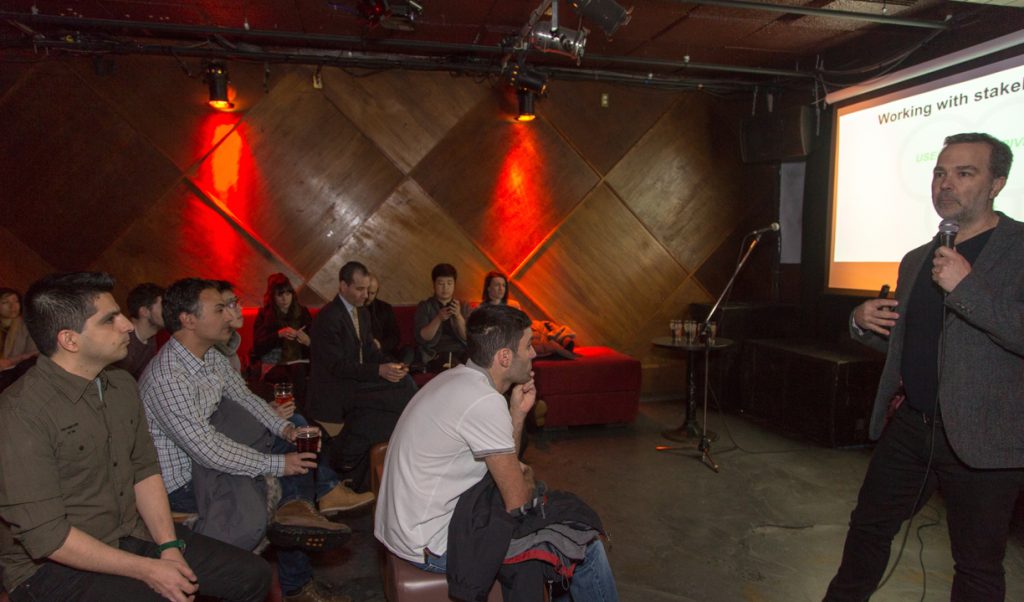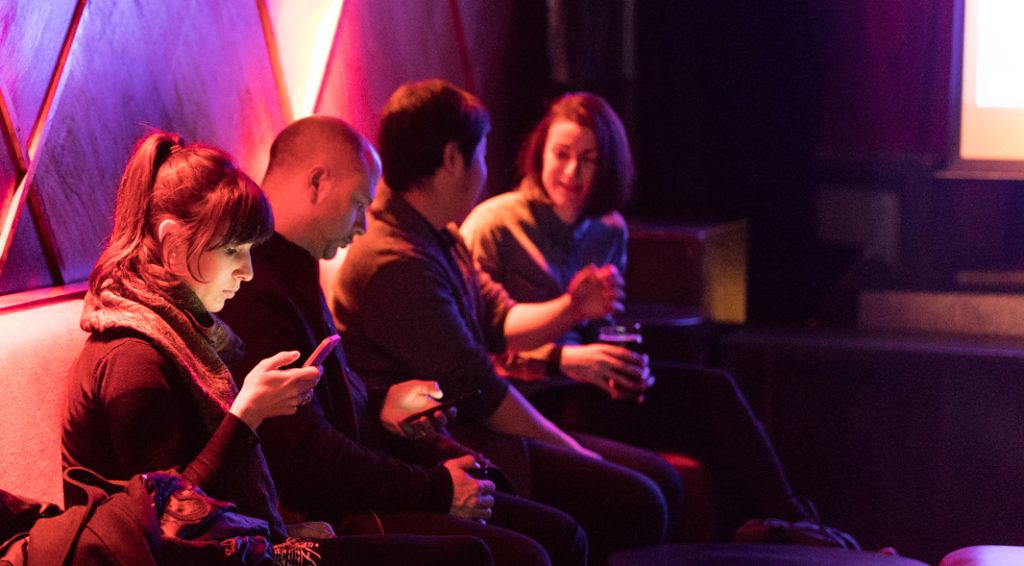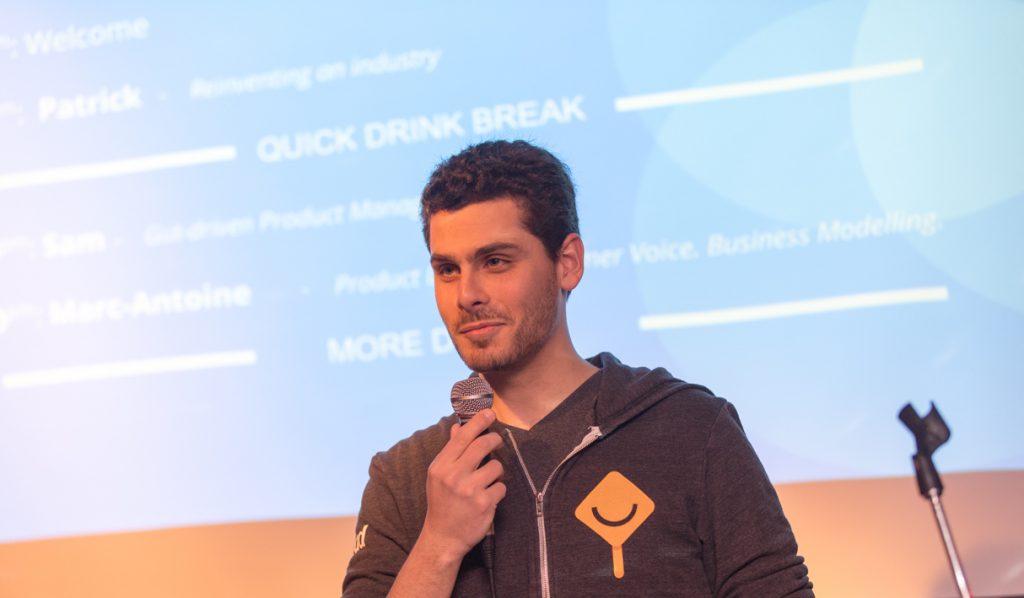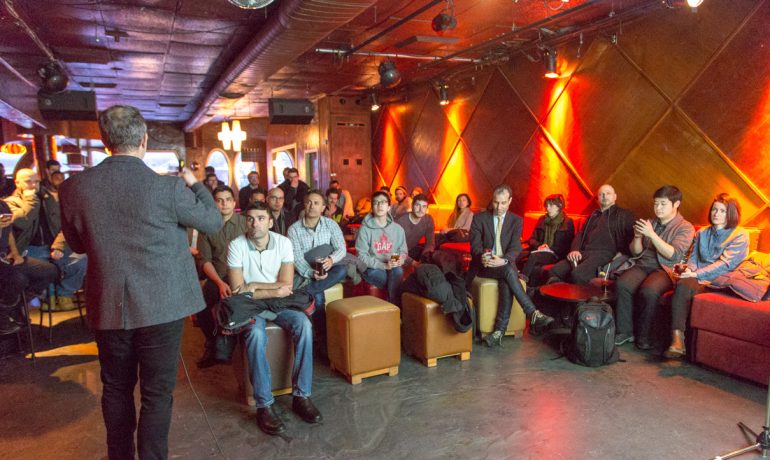Pour lire cet article en français, cliquez ici.
ProductTank is a meetup that brings together product managers to exchange ideas and their business experiences. Its latest edition in Montreal, under the theme of transportation, invited Patrick Gagné, partner and product and marketing manager at Taxelco and co-founder of the InnoCité MTL accelerator; Sam Vermette, co-founder and CEO of Transit App; and Marc-Antoine Ducas, CEO of Netlift.
What brought these entrepreneurs to the level of success that they’ve achieved is the desire to offer an alternative to the solo car. “On any given business day in Montreal city, you have about 100,000 people getting around to work with an alternative: walking, biking, using carsharing. Then you do have around 400,000 people that use transit, and you have 1.5 million people that drive alone to work,” said Ducas. “During peak hours, there are as many empty seats in cars than the total population of the city.”

For Transit App, they tried to build a product that they found useful for themselves as the initial consumers of public transportation. “The worst thing you can do is build something you don’t use yourself because you kind of lose touch with the core, the essence of what you’re trying to build,” said Vermette.
And this is a continuous learning process. “We had a ‘ah-ha!’ moment [in the validation process before we went to market] when we realized that taxi drivers work in a very unstable financial situation; it’s a very precarious situation,” said Gagné. “Initially, we had the idea of doing revenue sharing with taxi drivers.”

The ability to adapt by listening to the different users of your product continuously came up as one of the major keys to the success of a business.
For Taxelco, it went through three channels: a social impact, an industry transformation, and innovation. First, “You have to keep in mind that most drivers in the industry, even Uber drivers, generate between $5 and $10, or $12 an hour,” says Gagné. “It’s not a very lucrative lifestyle.” Plus, they realized that by bringing financial stability by offering a hourly wage, they could actually control the level of quality service at the same time.
Then, they had the idea of branding their cars, implementing dynamic pricing downwards and upwards, and creating the ability to rent out the taxi licenses. They even want to add a fee for a fund that would allow the government to “purchase back taxi license over the next 5 to 10 years,” said Gagné.
Finally, the idea of having electric cars, charging infrastructure, connected objects similar to an in-flight entertainment system, and the mobile app all contributed to the likability of their service.

For Transit App, the growing number of customers is explained by the fact that they’re still the only app that shows you right away when is the closest bus coming by geolocation, said Vermette. As the first customer of their product, the Transit team understands the need of a user-friendly minimalist approach, and with a referent such as the color-coding used to identify the different means of transportation in each city.
As for Netlift, the carpooling system which aims for car owners to use their service on a daily basis, they first were attentive to creating a feeling of security that is present behind every car’s wheel. “We discovered that a car, for a lot of people, is not a transportation mode, it’s an insurance policy,” said Ducas.
And how do they see the future of their company with the arrival of autonomous vehicles?
“Although I believe that autonomous vehicles will come to being and it will impact urban transportation for sure, the question of time is relevant,” said Gagné. “I’m not one of those super enthusiasts who see a world with 100 percent of autonomous vehicles in the streets and no human beings behind the wheels. Too many changes need to happen before that.”
Photos by Julian Haber

